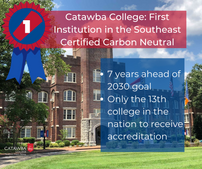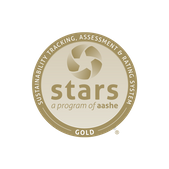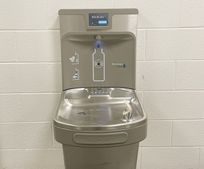Carbon Neutrality Seven Years Ahead of Schedule
Catawba College made a climate commitment to reach full carbon neutrality by 2030. This spring, Catawba College made the announcement that it had reached that goal seven years ahead of time. It is the first institution in the Southeast to achieve carbon neutrality, and only the 13th nationwide to do so. The announcement was made at a special event attended by North Carolina Governor Roy Cooper who spoke in acclaim of the green initiative, and by Tim Carter, president of the non-profit Second Nature which sets the institutional standards for carbon neutrality, along with a host of local dignitaries, College trustees, members of the press, faculty, staff, and students. A mix of renewable energy, energy efficiency, carbon offsets, and renewable energy credits were combined to attain the goal. More information about Catawba’s achievement, the event, and a video of the announcement is available:
STARS Silver Rating
Catawba College attained a Silver rating in recognition of its sustainability work from the Association for the Advancement of Sustainability in Higher Education (AASHE). STARS stands for Sustainability Tracking, Assessment & Rating System, which measures and encourages sustainability in all aspects of higher education. It is the most widely recognized framework in the world for publicly reporting comprehensive information related to a college or university’s sustainability performance with 900 participants in forty countries. Catawba is developing a plan to reach the Gold STARS rating within the next few years.
Green Power Partner
As a leader in environment and sustainability, Catawba College recently joined the US Environmental Protection Agency’s Green Power Partnership. Catawba uses more than 8.5 million kilowatt-hours (kWh) of green power annually, enough green power to meet all of the College’s electricity use. Per the US EPA, Catawba’s green power use is equivalent to the electricity use of more than 800 average American homes annually. By choosing green power, Catawba College is helping advance the voluntary market for green power and the development of those sources. The Green Power Partnership is a voluntary program that helps increase green power use among U.S. organizations to advance the American market for green power and development of those sources as a way to reduce air pollution and other environmental impacts associated with electricity use.
First Ever Solar Shelters Installed
The two new Haven Solar Shelters on Stanback Plaza in front of the Cannon Student Center are so much more than fancy-looking picnic tables. Made in North Carolina by Spotlight Solar, Catawba College is the firm’s first customer. In addition to the two Havens already installed, three more will be installed in other campus locations. They use bifacial solar panels to create electricity that is stored in batteries under the tabletop, which powers lighting that comes on automatically in the evenings allowing continued after-dark use. Each Haven has sixteen different power options providing up to 605 watts of electricity, including four wireless charging pads, four 120V outlets, four USB A outlets, and four USB C outlets. They also provide welcome daytime shade for seeing the screens on electronic devices - and for the humans using those devices. From the day installation was finished, they’ve been the most popular outdoor seating on campus.
Filling a Demand: Water bottle filling stations added
Twelve new water bottle filling stations have been added across campus. These new additions bring the total number of stations to 31, which are spread throughout 16 campus facilities. These much-used amenities have saved the equivalent of over 350,000 single-use plastic bottles entering landfills to date. Two new water fountains were also installed along with an accompanying water bottle filling station at each end of the Keppel Lobby of the Robertson College-Community Center. A list of the filling station locations as well as an interactive map are available on the Sustainability section of Catawba’s website:






